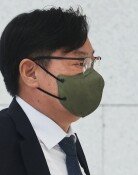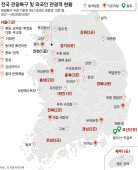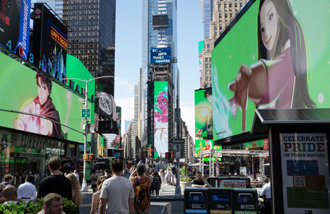Consumption stimulus measures involve quarantine risks
Consumption stimulus measures involve quarantine risks
Posted October. 19, 2020 07:44,
Updated October. 19, 2020 07:44
The South Korean government considers distributing vouchers around the end of this month to promote cultural and leisure activities such as movie-going, shows, exhibitions and sports events. South Korean citizens can buy tickets for movies and performances for less than the usual price by 6,000 and 8,000 won, respectively. A 30,000-won refund will be given at indoor sports facilities and gyms when a monthly membership costs more than 80,000 won. Starting from next month, various discount promotions and cultural and tourism events including the Korea Sale Festa will help revitalize domestic demand across various areas.
As the COVID-19 pandemic drove up the daily number of newly confirmed cases to a three-digit number by the middle of August, the government postponed launching the voucher program, which is soon to be put in place exclusively in cultural and leisure areas. However, authorities intend to wait and see the spread of COVID-19 before deciding to give out hospitality, traveling and dining vouchers.
Amid weak, but growing, signs of recovery across economic indicators regarding domestic consumption, the government seemingly intends to take it as an opportunity to help rebound the national economy over the fourth quarter of the year by promoting voucher programs. Indeed, the private sector has been hit hard by decreasing demand since social distancing restrictions were tightened in mid-August, while South Korea will likely to see a contraction in economic growth amid the COVID-19 pandemic.
However, it is worrying that the upcoming voucher program may create negative side effects for the public. For example, the government's announcement to distribute vouchers in August made its citizens to feel complacent about the pandemic, which became one of the main causes for the second wave of COVID-19 across the Seoul metropolitan area. Since the social distancing restrictions were eased to level 1 last Monday, the daily new cases have averaged 62 over the week, higher than the threshold of 50 for level 1.
Apart from leaf peeping travelers across the nation, a large number of young students going back this week to elementary, middle and high schools can turn into a trigger for another wave of the pandemic if we stay indifferent and complacent. Added to this, those who return to the nation from overseas pose a greater risk to quarantine given that things are worse in other countries. As of Sunday, the total number of COVID-19 patients across the globe exceeded 40 million just one month after it totaled 30 million. In particular, the pandemic is only getting serious day after day in northern hemisphere nations such as the United States, Britain, France and Germany where fall has just started with their daily records reaching a new high almost every day.
The South Korean government is intent on putting the brakes on consumption stimulus initiatives whenever they lead to another spread of the virus. All it does about the pandemic is to tell stores and shops to close and people to lock themselves in every time it shows bad signs and ease quarantine restrictions once it slows down. Given that the ongoing COVID-19 pandemic is becoming a long battle against the whole nation, it is an absurd idea to repeat the simple way of ordering a lockdown and then shifting to a consumption stimulus package. Instead, the government should take delicate and sustainable quarantine measures so that its citizens feel safe and secure when dining out and going to the movies. Along with it, it is important to take care of those who suffer mentally and psychologically due to the prolonged pandemic considering that patients who visited medical centers due to depression rose sharply in numbers to reach 600,000 over the first half of the year. The K-quarantine is nothing to boast because it is South Korean citizens who contribute greatly to quarantine by wearing a facemask at all times and refraining from visiting a crowded place.
Headline News
- N. Korea redefines S. Korea as ‘hostile state’ in revised constitution
- Samsung develops graphic DRAM with industry-leading capacity and speed
- Three questions allegedly leaked via text message during Yonsei Univ. essay test
- China to inject 340 trillion won in loans to support real estate sector
- Dodgers beat Mets to take 2-1 lead in NLCS







